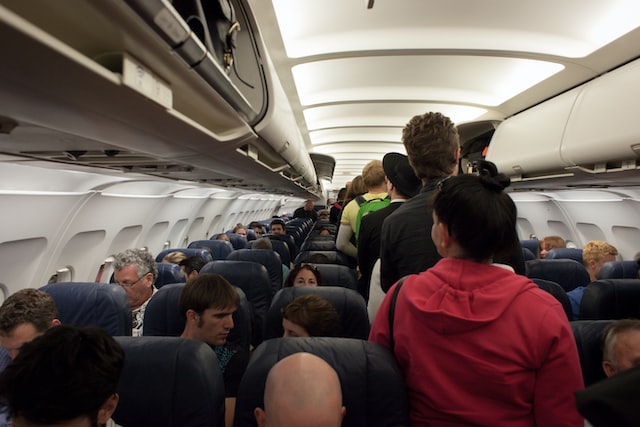I recently went on a trip for work and once again found myself in an airport. I’ve been no stranger to airports over the last several years. As long as time is not a factor I really don’t mind them. In fact, I find airports to be an excellent place to people-watch. I’m sure you are aware of this kind of thing: you position yourself in a high traffic area where many different people walk by and you just sit back and observe. If you have never done this I suggest you try it sometime.
On this occasion I found myself watching people jostling for position to get on the airplane. The airline boarding process is fascinating. You sit back and watch as group after group are told it is their time to get in line. These groups are called boarding zones by the people working there. All you have to do is watch the boarding process for any major airline to see just how many different zones there are. Delta, for example, has about eleven such zones. American has about 9 such groups, and United has at least 6.
Pause for a minute and let that sink in.
That is a lot of ways to partition people.
Why do we do this? What is the point of all of this separation?
It certainly isn’t because of time. There have been many studies on how to best board commercial airplanes, and it probably won’t shock you to learn that the way it is done now is not all that great in terms of getting people on the plane quickly. The way we used to do this was randomly boarding. By that I mean that people may still have had assigned seats, but at the appropriate time they threw open the doors and said “time to come on board.” People would get in line however they wanted. It turns out that this random boarding method is actually faster, statistically speaking, than what we do now.
So if time isn’t the reason, what is?
I can give you the answer in two words: Social Learning
The theory of social learning was proposed by Albert Bandura. He said that the way we learn is influenced by observing and imitating the behaviors of others. First, we observe the way others act. We see the consequences of their actions and, if those consequences are favorable, we decide we want the same outcome. Second, we make a judgement about whether what that person is doing could fit with what we like to do. Third, we choose to imitate the behavior. We want the same outcome, so we act the same way.
An example of this came with my son when he was a toddler. I remember a specific time when he didn’t want to eat his veggies. I decided not to make him. Instead, I ate my vegetables and then had a cookie. Of course he asked for a cookie too, but I had to explain to him that I got a cookie because I ate my dinner first. It wasn’t long before his food was eaten and he was having his cookie. This is social learning, plain and simple.
In the case of the airline, social learning comes into play when we are made to watch the first class and other higher paying travelers board the plane before us. Sometimes the boarding representatives will point out that those who signed up for their airline’s credit card are the ones that got to board early. What they are really saying is that if we wanted to be treated better in the boarding process, then we will imitate the behaviors of those that paid more for the privilege.
Social learning can be used for and against us. The book of Proverbs is good at pointing this out:
Proverbs 13:20
Walk with the wise and become wise, for a companion of fools suffers harm.
Proverbs 22:24-25
Make no friendship with a man given to anger, nor go with a wrathful man, lest you learn his ways and entangle yourself in a snare.
The role model philosophy works. Most advertisements take advantage of this, showing you people benefitting in some way from the use of a product. “Don’t you want to benefit too?” is the unspoken question. Likewise, this can work for us by surrounding ourselves with the kind of people we want to be like.
The flip side of this is to make yourself someone that other people would like to be with, so they can learn the right way to behave too.
God Bless

